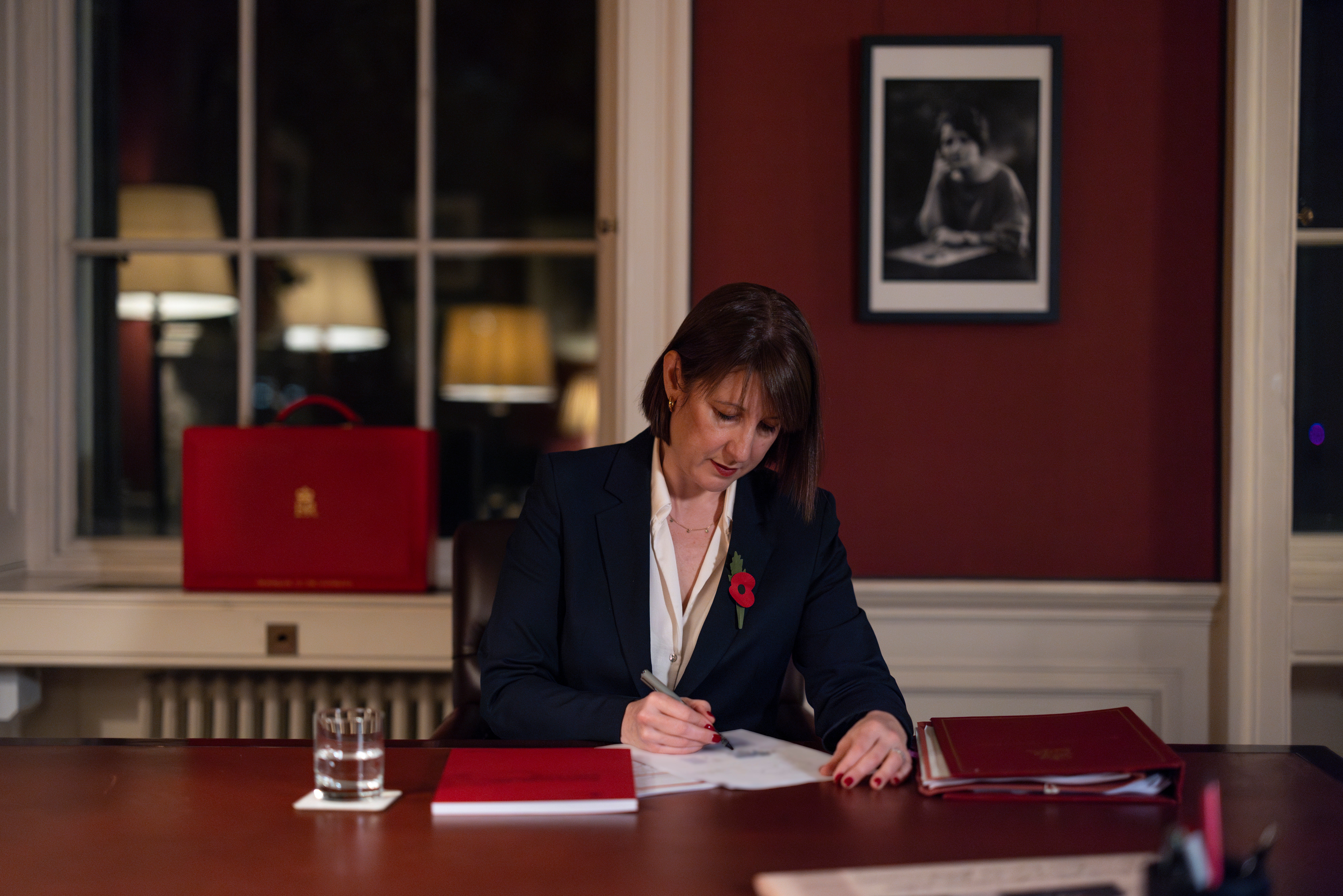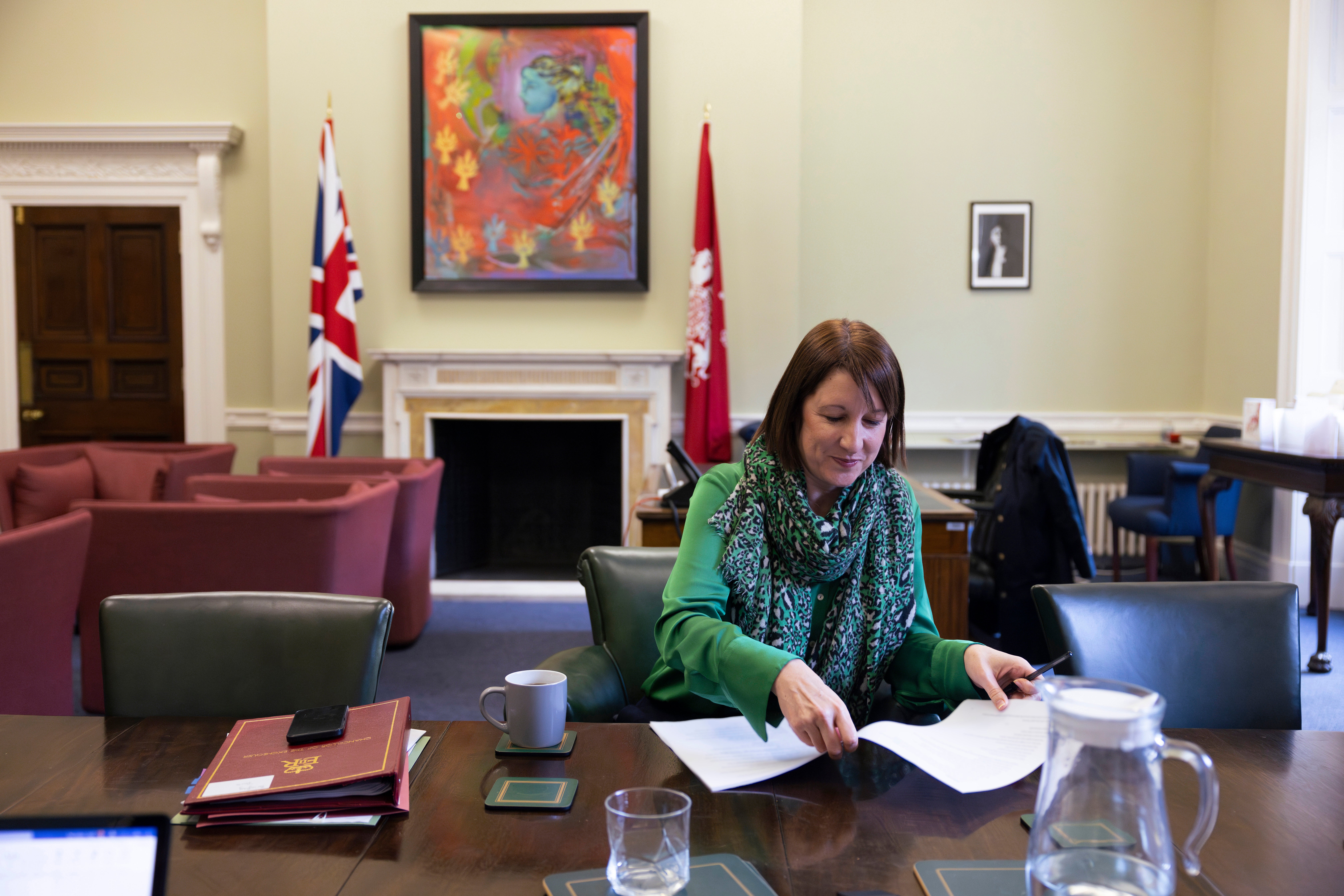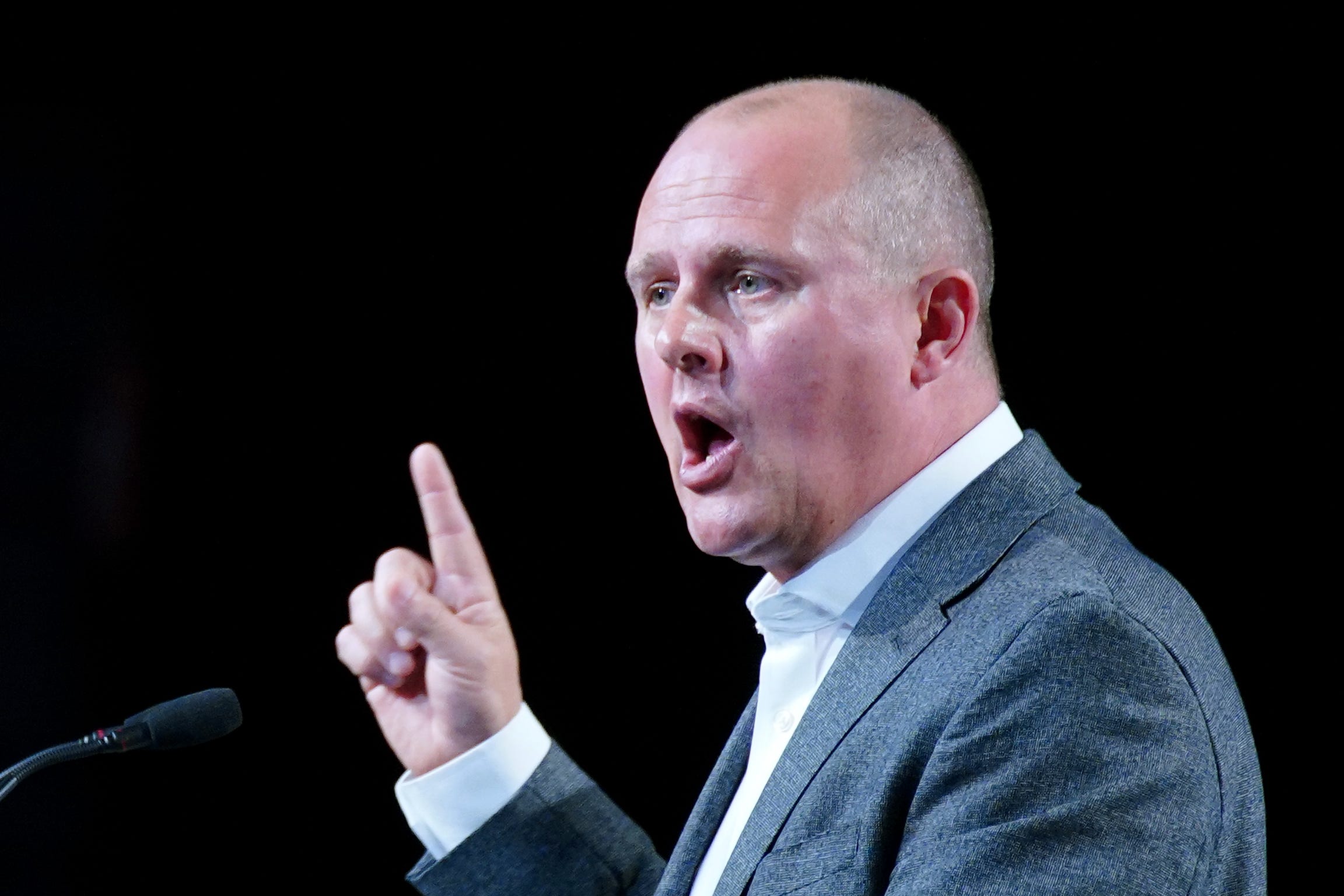Rachel Reeves hands low-paid a £1,400 boost as minimum wage to rise by 6.7%
The chancellor will increase the measure, also known as the national living wage, from £11.44 per hour to £12.21 from April
Your support helps us to tell the story
From reproductive rights to climate change to Big Tech, The Independent is on the ground when the story is developing. Whether it's investigating the financials of Elon Musk's pro-Trump PAC or producing our latest documentary, 'The A Word', which shines a light on the American women fighting for reproductive rights, we know how important it is to parse out the facts from the messaging.
At such a critical moment in US history, we need reporters on the ground. Your donation allows us to keep sending journalists to speak to both sides of the story.
The Independent is trusted by Americans across the entire political spectrum. And unlike many other quality news outlets, we choose not to lock Americans out of our reporting and analysis with paywalls. We believe quality journalism should be available to everyone, paid for by those who can afford it.
Your support makes all the difference.Millions of workers will be handed inflation-busting pay increases as Rachel Reeves hikes up the minimum wage by 6.7 per cent.
The chancellor will increase the measure, also known as the national living wage, from £11.44 per hour to £12.21 in April next year.
The change amounts to a £1,400 annual pay rise for a full-time worker on the national living wage. The government will also increase the minimum wage for 18- to 20-year-olds by £1.40 per hour as part of a plan to end the disparity between younger and older adult workers. In total, the change means 3.5m people workers on the minimum wage will receive a pay boost.

Speaking ahead of her first Budget on Wednesday, Ms Reeves said: “This government promised a genuine living wage for working people. This pay boost for millions of workers is a significant step towards delivering on that promise.”
Business secretary Jonathan Reynolds added: “Good work and fair wages are in the interest of British business as much as British workers.
“This government is changing people’s lives for the better because we know that investing in the workforce leads to better productivity, better resilience and ultimately a stronger economy primed for growth.”
While the move will be welcomed by millions of workers, it will pile pressure on businesses that are also set to be hit by an increase in employer national insurance contributions in Wednesday’s Budget.
The impact of both changes will see some firms facing significant increases in their wage bills. Business group the Institute of Directors (IoD) said the increase in national insurance contributions and the minimum wage will have “a significant impact” on costs for firms.
IoD principal employment policy advisor Alexandra Hall-Chen said: “Taken together this is something of a perfect storm for business and will be a considerable disincentive for employers to hire new staff. We urge the government to consider the combined impact of these policies and adhere to its pro-growth and pro-business mission.”

The hospitality industry has warned the changes could threaten jobs and businesses, saying the sector will be “collateral damage”.
Kate Nicholls, chief executive of UKHospitality, said: “It’s an added £1.9bn to the hospitality wage bill, on top of the cost of the Employment Rights Bill and, if rumours about the Budget are true, employer NICs and business rate rises.
“Trying to balance the books from the pockets of high street businesses will simply leave hospitality as collateral damage – threatening jobs, future investment, price increases for consumers, and business viability.
“Businesses will be approaching tomorrow’s Budget with even more trepidation following this news. Our companies desperately want to be able to support higher wages for staff but what is being asked of them is simply unsustainable if taxes are going to shoot up at the same time.
“In light of this, it’s paramount that the Budget includes targeted measures to support the high street and the cost burden it is facing. That must start with addressing the broken business rates system and implementing a lower, permanent and universal level for hospitality.”
But the TUC, which represents Britain’s trade unions, said that every time the minimum wage rises critics predict it will drive up unemployment. “Every time they are wrong,” general secretary Paul Nowak added.

He said: “The government is delivering on its promise to make work pay.
“This increase will make a real difference to the lowest paid in this country at a time when rents, bills and mortgages are high.
“Low-paid workers spend more of their earnings in their local economies – so boosting their pay packets will benefit local businesses too.”
Low Pay Commission chief Philippa Stroud said the change, based on its recommendations, would “provide a fair wage for the lowest-paid workers while taking account of economic factors”.
Baroness Stroud said: “These rates secure a real-terms pay increase for the lowest-paid workers. Young workers will see substantial increases in their pay floor, making up some of the ground lost against the adult rate over time.”
And deputy PM Angela Rayner said: “A proper day’s work deserves a proper day’s pay.
“Our changes will see a pay boost that will help millions of lower earners to cover the essentials as well as providing the biggest increase for 18–20-year-olds on record.”
Despite the increase, the minimum wage will still be lower than the level set by the Living Wage Foundation, which bases it on “actual living costs”. It has set the real living wage at £12.60 for the next year, rising to £13.85 for London-based workers.
Cosmetics firm Lush, which pays the real living wage, welcomed the government’s change, saying the staff “making and selling our products are crucial to our success”.
Ethics director Hilary Jones said: “In these tough times where the cost of living continues to rise, it is great to see the government increase minimum wage closer to these calculations to support the hardest working and most vulnerable workers across the UK.”

Join our commenting forum
Join thought-provoking conversations, follow other Independent readers and see their replies
Comments